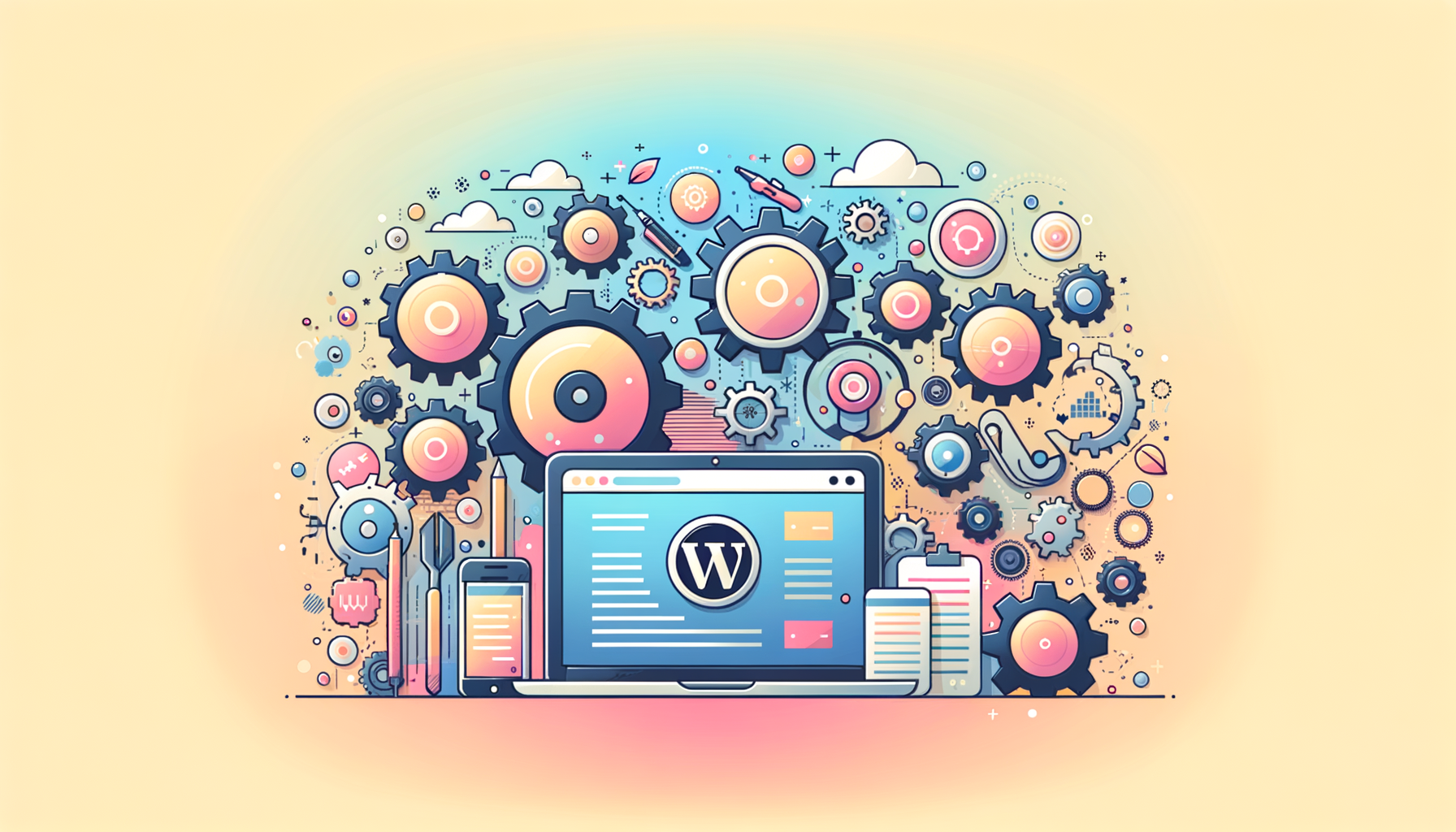
Ensuring Site Reliability Through Proactive Maintenance
Maintaining a WordPress website is akin to keeping a well-oiled machine running smoothly. Regular maintenance is crucial for preventing downtime, ensuring site security, and optimizing performance. Here’s a comprehensive guide on the role of WordPress maintenance in preventing downtime and keeping your site reliable.
The Importance of WordPress Core Updates
Keeping the WordPress core software up to date is one of the most critical maintenance tasks. WordPress core updates often include security patches, bug fixes, and new features that enhance the overall functionality of your site. It is essential to apply these updates as soon as possible to protect your site from security vulnerabilities. However, before updating, it is highly recommended to take a backup of your site to avoid any potential data loss.
Automated Backups: Your Safety Net
Regular backups are indispensable for any WordPress site. Automated backups ensure that your data is secure and can be quickly restored in case of any issues such as hacking, accidental damage, or update-related problems. Tools like Jetpack and Duplicator offer automated daily backups, real-time backups, and one-click restore options. It is advisable to store these backups in a secure, off-site location to prevent them from being compromised alongside your live site.
Monitoring Uptime and Performance
Website downtime can be devastating, leading to lost sales, damaged reputation, and frustrated visitors. To prevent this, it is crucial to monitor your site’s uptime and performance regularly. Tools like UptimeRobot, Pingdom, and Jetpack can help you monitor your site’s availability and performance in real-time. These tools provide instant alerts on downtime, performance dips, or security threats, allowing you to take immediate action.
Securing Your WordPress Installation
Boosting your site’s security is vital for minimizing the risk of downtime. This involves several steps:
- HTTPS and SSL/TLS Certificates: Ensure your URL starts with HTTPS. Many hosting providers, such as Kinsta, offer built-in SSL/TLS certificates. If not available, you can obtain a free SSL certificate from services like Let’s Encrypt.
- Plugin and Theme Updates: Keep your plugins and themes up to date to patch security vulnerabilities. Always back up your site before updating and test updates on a staging site to avoid any compatibility issues.
- Security Plugins: Install reputable security plugins like Wordfence or MalCare to protect your site from malicious attacks and conduct regular security audits to fill any gaps in your site’s security.
Optimizing Load Times and Database Performance
Optimizing your site’s load times and database performance is essential for maintaining a seamless user experience. Here are some tips:
- Choose a Solid Hosting Provider: Select a hosting provider that offers reliable uptime, sufficient storage space, and responsive customer support. Avoid cheap hosting that might compromise on quality.
- Database Optimization: Regularly clean up your database to improve your site’s loading times. Tools like WP-Optimize can help you optimize your database efficiently.
- Page Speed: Monitor and optimize your page speed using tools like GTmetrix or Google PageSpeed Insights. This can help in reducing the likelihood of performance-related downtime.
Weekly and Monthly Maintenance Tasks
To keep your WordPress site running smoothly, it’s important to have a structured maintenance schedule. Here are some tasks you should consider:
Weekly Tasks
- Check for available updates and alerts in the WP Admin dashboard.
- Update WordPress core, plugins, and themes.
- Verify that backups are being created regularly.
- Check for any errors on your site’s pages.
Monthly Tasks
- Perform security scans and performance assessments using tools like Wordfence or WP Performance Profiler.
- Optimize your database to improve performance.
- Review and adjust your automation settings to ensure they align with your site’s evolving needs.
Handling What Your Host Doesn’t Cover
While some hosting providers, such as WordPress.com, offer managed services that include software updates, backups, and security scans, others may not. In such cases, you need to handle these tasks yourself or consider a paid website maintenance service. Here are some steps:
- Enable Automatic Updates: Set up automatic updates for your WordPress core, plugins, and themes.
- Choose a Backup Plugin: Install a reliable backup plugin like Duplicator or Jetpack.
- Install a Security Plugin: Use security plugins like Wordfence or MalCare to protect your site.
- Sign Up with an Uptime Monitoring Service: Use services like UptimeRobot or Pingdom to monitor your site’s uptime and performance.
Case Study: The Impact of Neglecting Maintenance
Imagine a scenario where a popular e-commerce site neglects regular maintenance. Without updates, the site becomes vulnerable to security threats. One day, a malicious attack compromises the site, leading to significant downtime and data loss. The site’s reputation is damaged, and customer trust is lost. This could have been prevented with regular backups, security audits, and timely updates.
Conclusion and Next Steps
Preventing downtime on your WordPress site is a multifaceted task that requires regular maintenance, proactive monitoring, and robust security measures. By following the strategies outlined above, you can ensure your site remains reliable, secure, and always available to your visitors.
If you need help in setting up or managing your WordPress site, Contact Us at Belov Digital Agency. Our team of experts is ready to assist you in maintaining a seamless and secure online presence.
Remember, prevention is more convenient than cure. Invest in regular maintenance to avoid the headaches and financial losses associated with downtime. For more tips and guides on WordPress maintenance, check out our blog for the latest insights and best practices.













